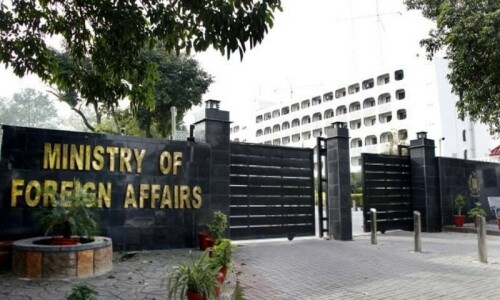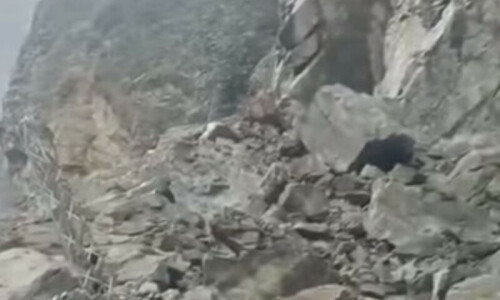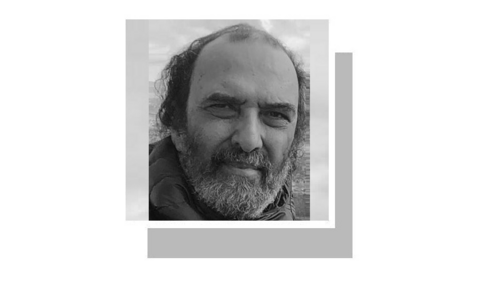If you love good films, like to read history and enjoy literature, you must be familiar with three big names: Rudyard Kipling, Michael Collins, and T E Lawrence — aka Lawrence of Arabia. They help us understand the early 20th century and how the concepts of martyrdom, nationalism, patriotism and sacrifice play differently for the people associated with them.
Lawrence of Arabia, Michael Collins, and My Boy Jack are not equally well-known films, but have become a good source of understanding history — though of course with some fiction blended in them. What relevance do they have for us now?
The first quarter of the 21st century shares some commonalities with the first 25 years of the 20th century, showing that, no matter how the world has progressed in the past 100 years, a lot remains the same.
This year, 2023, marks the centenary of the declaration of a Turkish republic after the end of the Ottoman empire. Lawrence of Arabia contributed to the Arab Revolt that precipitated the demise of the Ottoman Empire.
What can three films based on the lives of Rudyard Kipling, T. E. Lawrence and Michael Collins tell us about notions of sacrifice?
Ireland also marks a century after the end of the Irish Civil War that officially closed in May 1923. Michael Collins played a significant role in the Irish war of independence and lost his life in the civil war.
Rudyard Kipling was a marvellous writer but also a blatant promoter of British imperialism and a fierce opponent of granting independence to Ireland. To quench his thirst for war, he engineered the recruitment of his own teenage son, who lost his life at the beginning of the First World War.
MY BOY JACK
Let’s begin with My Boy Jack, which is a British biopic based on David Haig’s 1997 play. Daniel Radcliffe, of Harry Potter fame, plays the role of John (Jack) Kipling, the only son of Rudyard Kipling.
The film appeared on screens in the early 21st century, when Britain was involved in another two wars in Afghanistan and Iraq and there was growing resentment among the British public against British prime minister Tony Blair’s shameless advocacy for these wars. The films shows how, a century ago, Rudyard Kipling coped with his grief after losing his only son in the war that he had advocated.
Kipling’s poem, ‘My Boy Jack’ that he wrote after the death of his only son is a testimony to his love for martyrdom in the name of nationalism. The film shows Kipling encouraging his 17-year-old son Jack to join British forces fighting in the Great War (WW I).
The elder Kipling stokes his son’s ambitions by arranging several appointments for him to enlist, despite Jack’s poor eyesight. His poor vision prevents him from passing the medical examination, but his father does not allow him to give up. Rudyard uses his connections with the military establishment to secure his son an officer’s commission in the Irish Guards.
The Irish Guards came into being in 1900 during the Second Boer War in South Africa, in which Irish soldiers played a significant role by sacrificing their lives for the British Empire. Rudyard Kipling was happy with the Irish for serving British purposes, but was against granting them independence in Ireland.
The film brings in a gender element by showing Jack’s mother and sister disapprove of this posting. The two women are more humane and do not wish for him to go to the war, but they fail to persuade the men. At just 17 years of age, Jack becomes an officer for much older men who soldier under his command.
Landing in France within six months, Jack receives orders to lead his platoon into action in the Battle of Loos in September 1915. For the first time, chemical weapons are used and inflict heavy losses on both sides.
Jack is posted missing-in-action and the film shows his parents struggle to track him down by interviewing the surviving members of his platoon for many years. At the end of the film, one soldier finally confirms that Jack lost his life by enemy gunfire when he lost his glasses in the mud during an assault.
Rudyard Kipling was one of the most famous men in the world after becoming the youngest Nobel laureate of literature in 1907, at the age of 42. He used his fame to make political pronouncements in his writings. But even before that, he was an influential promoter of war and wrote poems such as ‘The White Man’s Burden’ in 1899, when he was just 34.
While the British armies were fighting the Second Boer War, the USA had invaded the Philippines — both wars lasted for three years: 1899-1902. Kipling, addressing the Americans specifically about the Philippines, wrote:
“Take up the White Man’s burden —/ Send forth the best ye breed —/ Go bind your sons to exile/ To serve your captives’ need;/ To wait, in heavy harness/ On fluttered folk and wild — / Your new-caught sullen peoples,/ Half devil and half child.”
The poem smacks not only of imperialism but of patriarchy and racism as well. Women are there to breed and fathers must ‘bind’ their ‘sons to exile’. The ‘captives’ are under ‘heavy harness’; they are ‘wild’ and ‘sullen’, half devil and half child.
Can you imagine the writer of such lines receiving a Nobel prize? Yes, you can. Perhaps these lines contributed to his laurels. Exactly after a century, the USA and UK were at it once again. Kipling’s outlook on authority and patriotism prevails much beyond his country and times.
When Rudyard Kipling was in his 20s, two boys opened their eyes in Wales and Ireland; they would also leave their mark on history in a different way: T E Lawrence was born in 1888 and Michael Collins in 1890.

LAWRENCE OF ARABIA
Lawrence would become an archaeological scholar and military strategist, capping his achievements by penning his legendary war activities in the Middle East during World War I. By the age of 40, Lawrence had completed his account of those adventures in his nearly 800-page magnum opus, The Seven Pillars of Wisdom.
Based on this book, the film Lawrence of Arabia (1962) became one of the greatest movies in film history. Master director David Lean achieves an unbelievable feat through his genius in the deserts of Arabia.
Though the book by Lawrence and the movie by Lean both take liberties in their narration, both are by and large informative and interesting. In the first decades of the 20th century, the British Empire was at its zenith, but people like Kipling and Lawrence were not content. While Kipling was promoting invasions and wars by writing poems and prose in favour of war efforts, Lawrence was on the battlefield.
In the First World War, Germany and Turkey were allies, hence common enemies of the United Kingdom. The Ottoman Empire of Turkey had ruled Arabia for about four centuries and the Arab tribes were not happy under the Ottoman yoke. The British were keen to ignite an Arab revolt and Lawrence was the right man to do the job.
He played his role in uniting and leading the diverse and hostile Arab tribes to fight the Turks. The film stars Peter O’Toole as Lawrence — still in his mid-20s — commanding tremendous knowledge of the native Bedouin tribes, thanks to his vast travels and research in the region, coupled with a good command of languages.
The film shows Lawrence travelling to Arabia to find Prince Faisal and serving as a liaison between the Arabs and the British. His encounter with Sherif Ali (Omar Sharif) in the desert, and that memorable shot in which a horse rider appears first as a dot in the far distance, gradually approaching the camera, has become a legendary work of cinematography.
While the film My Boy Jack is more about the Kipling family and how it deals with the enhanced level of patriotism that the senior Kipling imposes on the family — even at the cost of losing their only son — Lawrence of Arabia is a tale of how an individual, steeped in his quest for British supremacy, tortures his own body and soul.
In this quest, Lawrence even rebels against the orders of his superior officer. The film beautifully shows how he strikes out on a daring camel journey, with just 50 Arabs to take Aqaba on the other side of the Nefud desert.
On the way, they come across Auda Abu Tayi, leader of the Huweitat tribe of Bedouin Arabs. The inimitable Anthony Quinn plays the role of Auda, whom T E Lawrence has described in detail in his Seven Pillars of Wisdom.
Initially, Auda is reluctant to take up the challenge of attacking Aqaba, as he gets a regular stipend from the Turks for not disturbing them. Lawrence manages to convince him with promises of more financial reward.
The film shows them crossing the Nefud desert, but historians have disputed the claim. They say Auda did not allow Lawrence to take his men through the harshest part of the desert; instead they took a longer and less harsh route to Aqaba. Here the film becomes semi-fictional, but David Lean keeps his viewers riveted to the screen with his cinematography and the musical score by Maurice Jarre, who later composed the unforgettable Lara’s Theme for Dr Zhivago (1964), also by David Lean.
Lawrence of Arabia does not show Prince Faisal leading any war campaigns, as his people — armed with swords — come under attack by German and Ottoman strafing. Lean does not miss an opportunity to show that Lawrence was much more caring and courageous than his Arab counterparts.
When Gasim — played by I S Johar — lags behind in the desert and loses his caravan, it is Lawrence who comes back to rescue him, while the Arabs oppose the effort, assuming Gasim is dead. When the rescued Gasim commits a crime against another tribe, the same Lawrence shoots him, to avert a tribal fight.
As Kipling would have said, Lawrence was ever ready to ‘Take up the white man’s burden’ with ‘fluttered folk and wild’ who were ‘sullen’, ‘half devil and half child.’ In the process, Lawrence himself changes his own outlook, as he goes through emotional and physical trauma after some Ottoman soldiers capture and torture him on his reconnaissance visit to Dera — a small town in northern Arabia.

From then onwards, he is a brutal man who attacks retreating Ottoman and German soldiers on the way to Damascus. The carnage of killing the wounded and mostly exhausted enemy soldiers leaves Lawrence drenched in blood.
Lawrence is an embodiment of imperial ambition and faux remorse. The white man tries to improve things for the Arabs, as he pretended to do a century later in Afghanistan and Iraq, failing in both.
MICHAEL COLLINS
But Kipling and Lawrence are no match to Michael Collins, an Irish freedom fighter who challenges British domination and counters their atrocities with even more such actions. The film Michael Collins (1996) is another biopic that Neil Jordan — an Irishman — wrote and directed, making it the best movie on the Irish freedom struggle. In the second decade of the 20th century, Collins appeared to be a foil to both Kipling and Lawrence.
The film shows Collins (Liam Neeson) as a leading figure in the Irish struggle for independence against Britain. It begins with the end of the Easter Rising in 1916, when the besieged Irish freedom fighters surrendered to the British army at the Irish Republican Headquarters in Dublin.
While Kipling had sent his son to death with the Irish Guards, praising them as loyal subjects of the empire, the same empire was crushing the Irish aspirations for freedom, and Collins was at the forefront of that fight. His comrades face summary execution by firing squad and Collins, along with Eamon de Valera and Harry Boland, endure imprisonment.
By 1918, Kipling was vehemently involved in advocating a complete destruction of the Irish freedom movement and continued his role as a mouthpiece of British imperialism. By that time, Lawrence was able to extend British domination to Arab lands. But Michael Collins had a different take on the concept of patriotism and sacrifice.
Kipling’s advocacy for martyrdom was for the expansion of the empire, but Collins and his fellows were sacrificing to throw off the shackles of imperialism. The film shows the 1918 Irish elections, resulting in the victory of the Sinn Fein party, which unilaterally declared Irish independence.
Alan Rickman plays De Valera, who becomes president, with Michael Collins as director of intelligence for the emerging Irish Republican Army (IRA). British authorities decide to arrest the entire cabinet; Collins and Boland evade arrest and Collins becomes the senior-most leader still free.
He masterminds numerous assassinations of agents and collaborators under the IRA command. In retaliation, the British forces brutally suppress unarmed citizens who support an independent Ireland. Under the brilliant direction of Neil Jordan, the film’s portrayal of a massacre at Croke Park is moving and leaves you aghast at the British response to the Irish freedom struggle.
Michael Collins became an icon of guerrilla warfare in the first half of the 20th century; nearly 50 years later, Che Guevara overshadowed him in the 1960s. Just like Lawrence disobeyed his superiors, Collins does not agree with de Valera to fight a conventional war, as he thinks that would lead to another defeat against the might of the British Empire, as they faced at the end of the Easter Uprising in 1916.
We realise that Kipling, Collins and Lawrence were all adamant in their approach to violence in their own ways. The guerrilla campaign of Collins forces the British to offer direct communication with the Irish leadership.
De Valera wants to send Collins to London for negotiations with the British authorities. Collins is reluctant, but goes anyway and signs the Anglo-Irish treaty in 1921, enabling Ireland to achieve gradual independence, while remaining under British dominion during the interim.
De Valera rejects the treaty and seeks immediate and unconditional independence. The subsequent people’s vote backs the treaty but de Valera initiates a civil war against Collins, who loses his life in an ambush in August 1922; the civil war ends in 1923. From the martyrdom of Jack Kipling to the one by Michael Collins, the concept of nationalism and patriotism varies.
If you are an advocate of non-violence like Mahatma Gandhi, you may end up becoming a target of assassination by an extremist. But in the final analysis, when a world survey was conducted at the end of the 20th century to determine the greatest personality of the century, Kipling, Collins or Lawrence did not feature. It was Gandhi who had the distinction of being among the greatest personalities of the past 100 years.
Two more lines by Rudyard Kipling are worth quoting from, written as an epitaph of the First World War:
“If any question why we died/ Tell them, because our fathers lied.”
The writer is a columnist, educator, and film critic. He can be reached at Mnazir1964@yahoo.co.uk.
He tweets @NaazirMahmood
Published in Dawn, EOS, July 30th, 2023













































